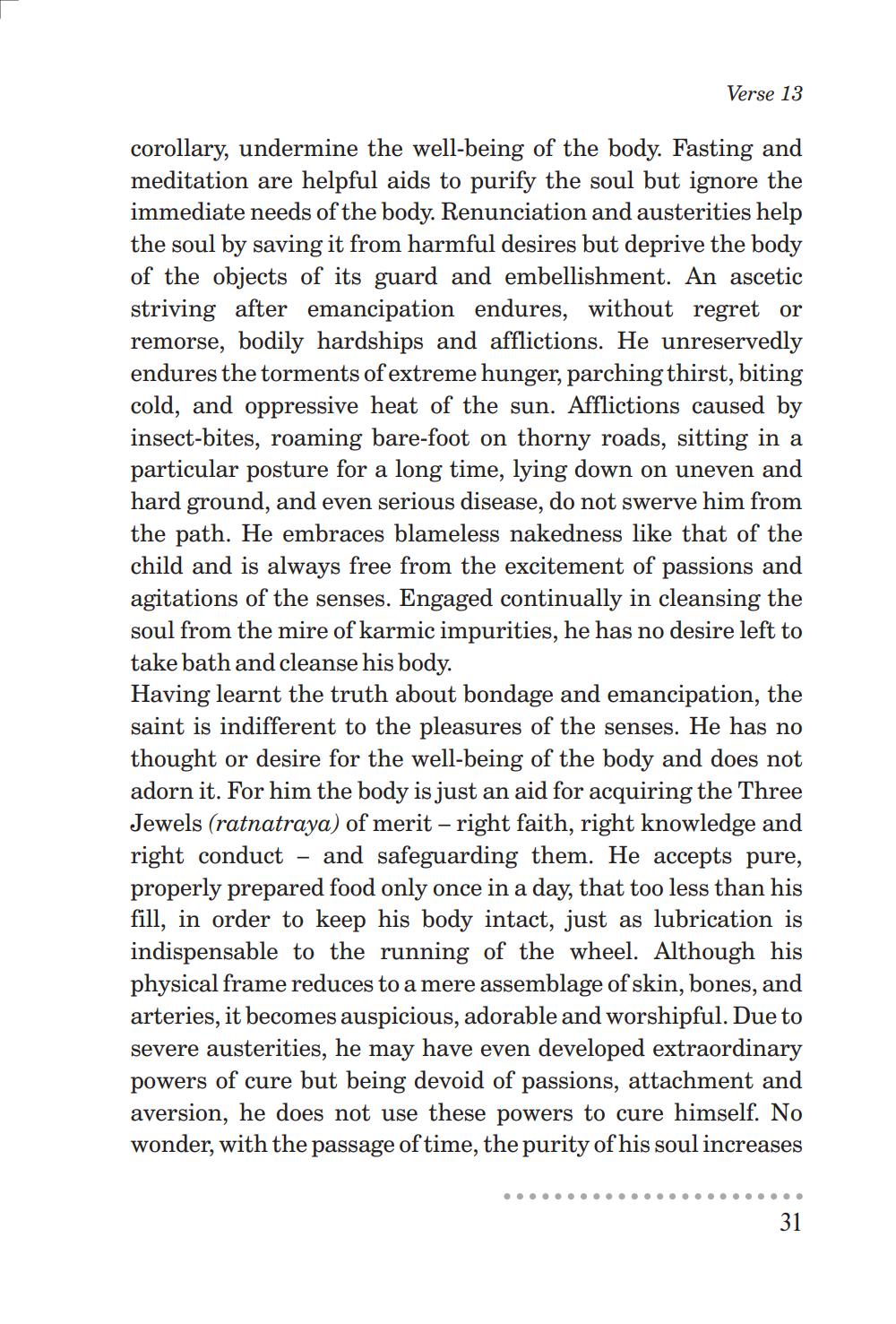________________
Verse 13
corollary, undermine the well-being of the body. Fasting and meditation are helpful aids to purify the soul but ignore the immediate needs of the body. Renunciation and austerities help the soul by saving it from harmful desires but deprive the body of the objects of its guard and embellishment. An ascetic striving after emancipation endures, without regret or remorse, bodily hardships and afflictions. He unreservedly endures the torments of extreme hunger, parching thirst, biting cold, and oppressive heat of the sun. Afflictions caused by insect-bites, roaming bare-foot on thorny roads, sitting in a particular posture for a long time, lying down on uneven and hard ground, and even serious disease, do not swerve him from the path. He embraces blameless nakedness like that of the child and is always free from the excitement of passions and agitations of the senses. Engaged continually in cleansing the soul from the mire of karmic impurities, he has no desire left to take bath and cleanse his body.
-
Having learnt the truth about bondage and emancipation, the saint is indifferent to the pleasures of the senses. He has no thought or desire for the well-being of the body and does not adorn it. For him the body is just an aid for acquiring the Three Jewels (ratnatraya) of merit – right faith, right knowledge and right conduct and safeguarding them. He accepts pure, properly prepared food only once in a day, that too less than his fill, in order to keep his body intact, just as lubrication is indispensable to the running of the wheel. Although his physical frame reduces to a mere assemblage of skin, bones, and arteries, it becomes auspicious, adorable and worshipful. Due to severe austerities, he may have even developed extraordinary powers of cure but being devoid of passions, attachment and aversion, he does not use these powers to cure himself. No wonder, with the passage of time, the purity of his soul increases
31




